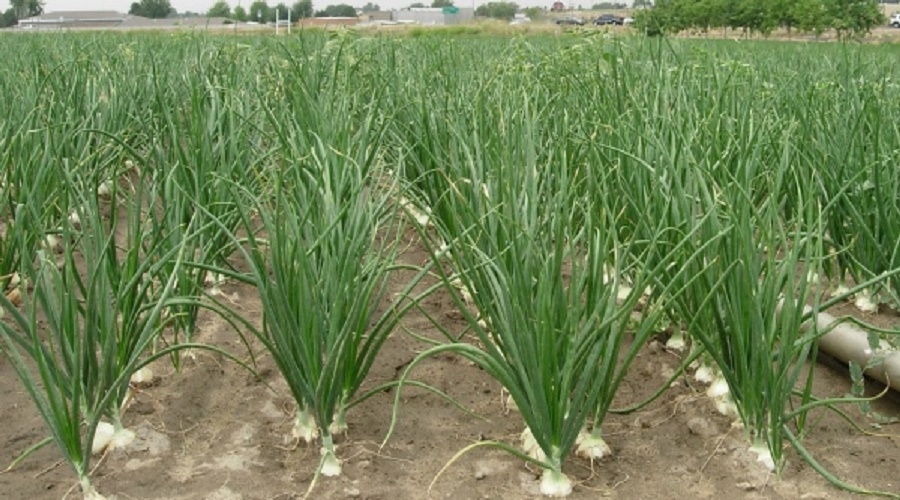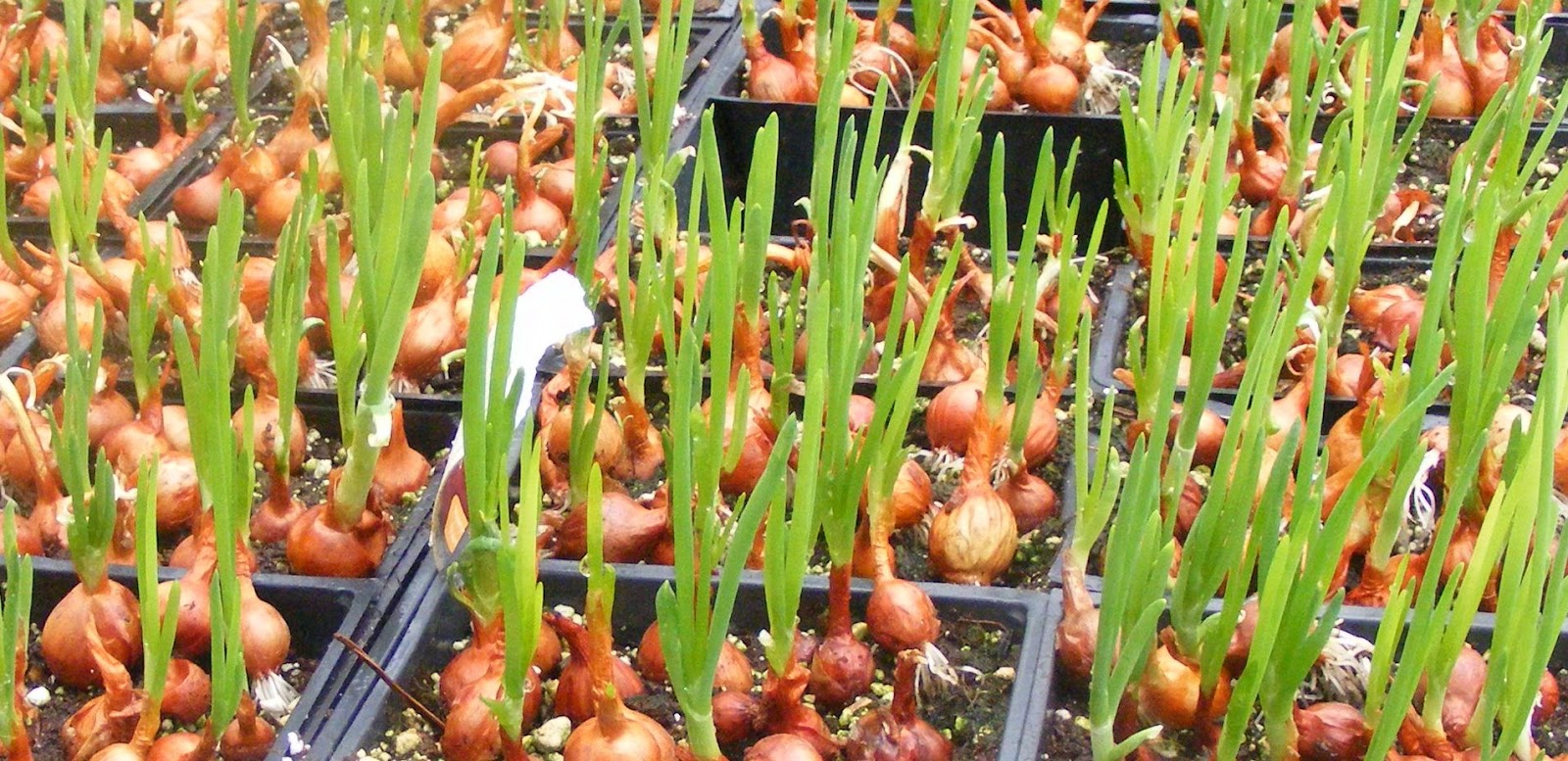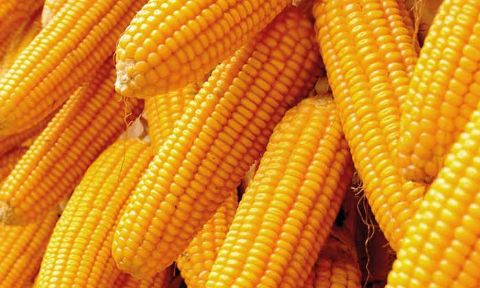Onions farming in Nigeria is highly neglected and is considered to be a menial job meant only for the poor Northerners and yet this crop support millions of lives in Nigeria and the world over! In fact there are many families in the Northern part of Nigeria that depend on Onions farming and are living the life of their choice without other people knowing of it.
Onions farming has the capability of making millions for anyone who knows the market value of the crop and is serious with it as business either farming or even doing the buying and selling aspect alone.
Onions farming is not difficult as it can be grown within the compound if one wish because it can as well survive as against what many believe that it can only be planted and harvested only in the Northern part of Nigeria. Onions can be grown anywhere in this country.

Onion farm | Image: AsiaFarmig.com
For those considering Onions farming, it is indeed a huge business with good turnover for serious farmers because it is highly consumed around the world. The business potentials in the business is great but just that most of us see onion as one of those food ingredients we cook with, but it goes beyond that if we really understand that millions of naira could be made by going into the business of onion farming.
For those interested in this great business of onion farming, we will be glad to provide you with some detailed guides on how to go into the business and make real money from it.
Starting Onions Farming Commercially
1.Types Of Onions
Know that there are two basic types or categories of Onions and they are, short day and long day onions with differing growing periods. So when making a selection of the onions to plant, be on the look out for the perennial onions and the bulb types because they produces faster and better than every other types.
2. How To Plant Onions
For maximum production, Onions are to be grown from seeds and then be transplanted. One can still grow it in which ever way he chooses but the methods of transplanting enables the farmer to properly space the crops. The best space is usually 1/2 an inch apart and 3/8 inch deep. The rows is best put at 15 inches apart.
3. Maintaining The Plants
Onions requires a lot of water at the early stage so if it’s not raining appropriately then be ready to have it watered frequently for good water retention. Weeding is very important also because it will help the crop to utilize the nutrients in the soil instead of sharing it with the weeds as Onions has been found to do much better undisturbed by the other grasses.

While weeding, enough cares should be taken not to disturb the roots needlessly. It is also good to employ natural root builder by adding some mycorrizal fungi to assist the roots get the soil nutrients.
5. Harvesting Period
Onion are usually harvested within three months, especially the bulb onions. Be on the look out for when the plants begins to yellow because that is the right time to harvest it. You can also induce the process by breaking the tops of the onions as that makes it ripen before bringing out flowering stalks. Do not wait until it starts producing flower stalks.
For the green onions, that is usually due for harvesting when it gets to 5 inches tall as it has been discovered to have more stronger flavor if it,s allowed to grow taller.
It is usually best to plant onions by the mid-October, though it can be planted at other times but just that it needs uniform nutrients and moisture through out the growing season. Furrow irrigation is encouraged for the plants to produce very well.
Onions farming is not for mediocre but is meant for those who want to make millions because it has the capacity to do just that. Go to various major markets in Nigeria and see that onions business is so huge as a bag of onions currently sell between N25,000, N30,000 and N45,000 as the case may be.
Festive periods in Nigeria boosters the prizes of onions and other fresh products like Tomato and Pepper which are also hot cakes in Nigerian market.
Other Business Opportunity In Onion Farming
You can buy a bag of onions at the rate of N4,500 and N5,000 from the Northern states of the country like Kebbi, Kano, Abuja or from any other states that grow it and have it brought down to any place of your choice while you source for the ready markets locally as it is consumed everywhere in the country.





Leave A Comment